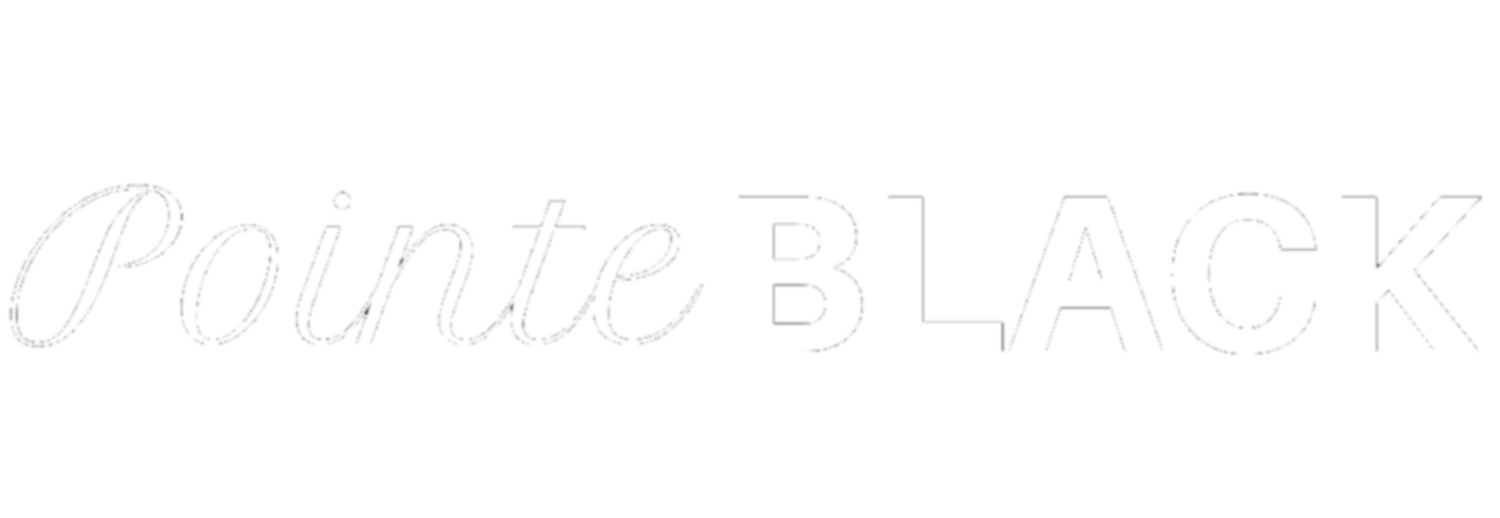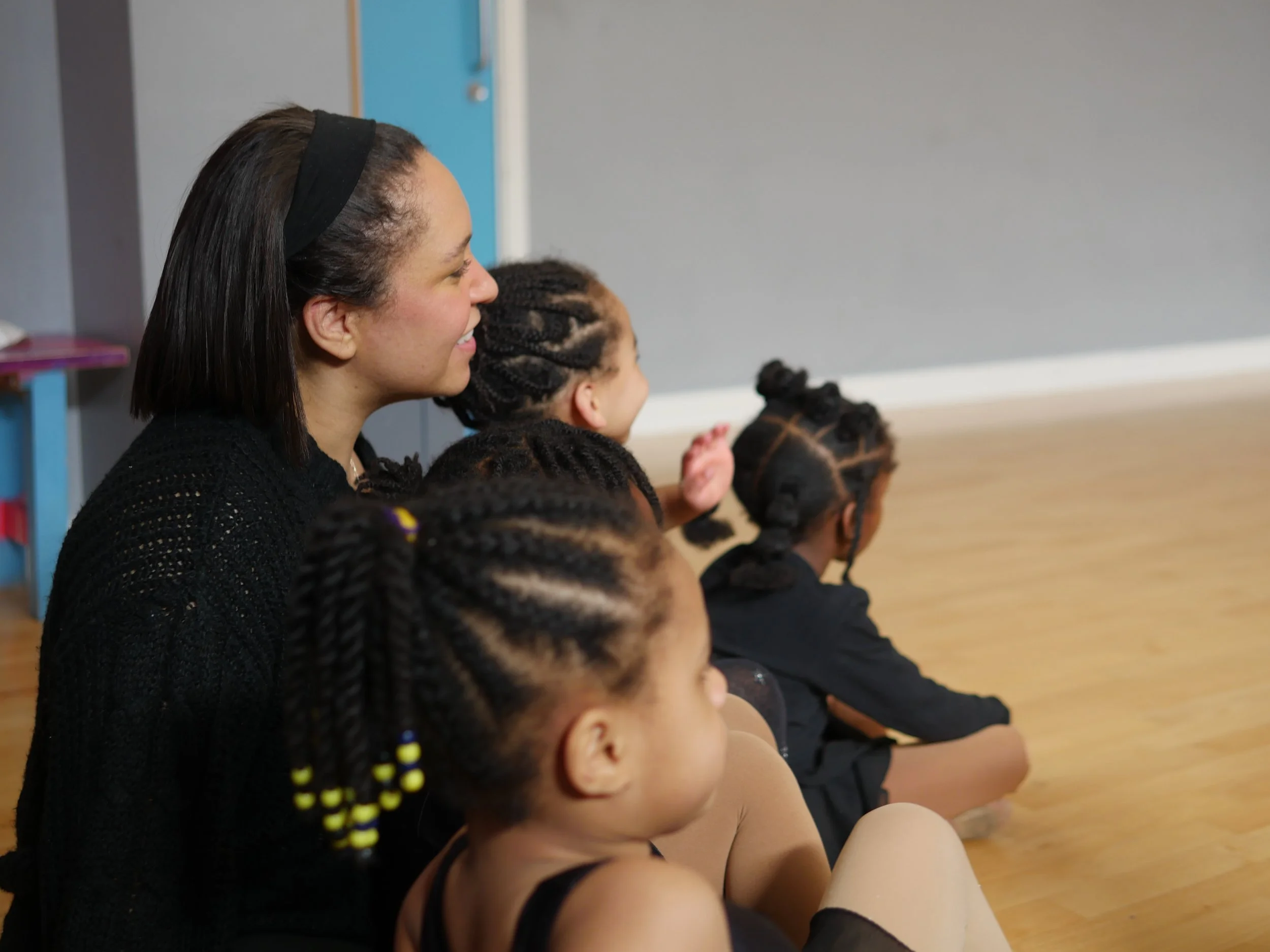What Community Means to Me: Dance, Mental Health and Pointe Black
Mental Health Awareness Week
This week is Mental Health Awareness Week, and I wanted to share a more personal story about community, about ballet, and about how Pointe Black has helped me in the face of long-standing mental health challenges. I also want to share some of the tools that have helped me find happiness along a not always easy road.
For anyone who may be struggling right now please reach out to a friend, a loved one, or a medical professional.
You can also contact:
Samaritans: Call 116 123 or visit samaritans.org
Shout (free text support): Text SHOUT to 85258
Mind: mind.org.uk
Dance and Mental Health
Dance is one of the few activities that speaks to the body, the brain, and the soul all at once. It’s not just exercise, it’s art, it’s expression. Studies have shown that physical activity can boost endorphins, the brain’s natural feel-good chemicals, which help reduce stress, anxiety, and symptoms of depression. However, dance goes a step further. It connects movement with music, creativity, and emotion, creating a kind of full-body therapy that many people might not realise they need.
There’s also a deep mental benefit to the structure of dance. Learning choreography, focusing on technique, and moving in sync with others helps shift our attention away from anxious or intrusive thoughts. In those moments, the body becomes the priority. It’s an exercise in grounding, regulating the nervous system, and reinforcing the mind-body connection. It’s no wonder more therapists and mental health practitioners are turning to movement-based approaches as a part of holistic ways to develop mental wellness.
But what makes dance even more powerful than movement alone is its community. Whether in a studio, on stage, or just dancing in a group for fun, there’s a shared joy, a collective energy. You feel like you belong. And for those of us who’ve ever felt isolated, disconnected, or unheard, that feeling is so powerful. Yes, I know soloists exist, and I know dancing alone helps me so much - we all do it, like nobody is watching. It’s a saying for a reason. But it’s not always about you, girlypop. And this blog, and the theme of this year’s Mental Health Awareness week, is about community.
“Depression was in my medical records since I was pre-school age. No one did anything about it.””
Mental Health: My Story
I’ve lived with mental health issues for as long as I can remember. Depression didn’t just appear in adulthood, it was part of my childhood. About five years ago, I went through my entire medical history and discovered that notes about childhood depression had been in my records since I was pre-school age. That surprised me, not because it wasn’t true, but because no one ever did anything about it. It was simply “noted,” as something to be kept an eye on.
I wanted to dance from a young age. But I wasn’t allowed to take classes until I was 14. When I finally started, dance became more than just a hobby, it became a lifeline. It was a turning point out of sadness. A place I could go to feel like myself, to be present, and sometimes just to feel anything at all. It’s hard to explain the power of that unless you’ve been there when your mind is entirely numb, and your body dramatically reminds you: I can feel.
The beauty of dance is that it doesn’t need a purpose. You can just do it. You don’t need to be at your best. You don’t need to perform. You just need to start moving. Start feeling.
Finding Pointe Black
Joining Pointe Black wasn’t just about dancing though. It was about finally being part of a space that felt safe. Pointe Black is rooted in Black heritage and culture, but it’s more than just ballet. It’s a community. A family. It’s a healing space where I don’t have to shrink myself to fit in, where my culture and identity aren’t an afterthought, they’re the foundation.
I express myself more freely here, and speak more naturally. I don’t have to code-switch. I get to just be myself, and that’s still a strange but beautiful feeling to have at “work.” This growth and change is a work in progress - don’t get me wrong - some parts unmasking and some parts decolonising my own brain. But it is in the works and I love it.
In addition to the sense of belonging, what brings me joy is the laughter in class. The children’s energy. Their tiny moments of progress. The feeling that something is building and that I get to be a part of it. I often find myself smiling throughout the week as I remember little things that happened in class. Pointe Black has helped me feel lighter, steadier, and more hopeful about the future.
Although I don’t struggle with depression anymore (thankfully), I do struggle with extreme apathy, so extreme it interrupts my daily activities and life. When it flares up, it’s distressing. Often during those times, I might not even have the energy to dance. But I’ve learned not to see that as failure, just a sign to rest and lean into what I know helps. If I can find any energy at all in addition to that, I will use it to dance.
In 2022, I ruptured my Achilles tendon while landing a grand jeté. It was my third class back after some time out, and I had already decided I wanted to teach. It was devastating. Dance wasn’t just something I enjoyed, it was part of who I am. The idea that I might never dance again was terrifying.
But I was still determined to dance and teach again even though the road to recovery was much longer than anticipated.
I messaged Ruth within days of my final leg surgery in 2024, telling her I was ready to start teaching. It sounds wild considering I hadn’t taught for over ten years, but she believed in me. She created a gentle, supportive environment where I could return not just to dance, but to myself. And that’s one of the biggest reasons I’m still here, still dancing. As part of a community.
A Mental Health Toolkit
Most of us will struggle with mental health at some point, whether due to life events, brain chemistry, or no clear reason at all. Over time, I’ve built a toolkit that helps me manage my wellbeing and find moments of joy, even when things are hard. It’s made up of coping strategies, mindfulness techniques, mindset shifts and other “brain training”. Here are some of my toolkit favourites and most used techniques.
Gratitude
I try to list three things I’m grateful for each day, even if they’re tiny. A dog saying hi to me in the street. The smell of fresh rain. Clean bedding. These small acts of noticing add up. They create momentum. Over time, they snowball into perspective and happiness.
Putting people’s mess back in their own garden
This is a visualisation technique I took from CBT, where when someone else’s mood is impacting yours you picture your own garden, just as you like it. Maybe you have a water feature, rose garden, modern landscaping, some jasmine and lavender growing, a herb patch - whatever works for you. Then someone comes along and tries to mess up your day with their own misery “dumping” junk in your garden. You were feeling great before they came along. But this isn’t your stuff. You have just got to pick up the junk, and put it back in theirs.
Awareness and Emotion Labelling
One of the most valuable lessons I’ve learned is to pay attention to and feelings, noticing when they come, but also noticing when they go. This is especially important for negative emotions. The awareness that they eventually subside can make it easier to work through them when they show up.
Asking for help
When I feel myself slipping, I check in. Am I eating well? Moving? Resting? If not, I will reach out. I typically will speak to my GP. In these years I’ve learned to advocate for myself really well, and also take the meds when I need them.
But whether it’s a text to a friend, a conversation with someone I trust, or just saying, “Hey, I’m not okay”, speaking up before things get too heavy is an act of self care. You don’t have to wait until you’re in a crisis.
Whilst this is nowhere near my full toolkit, and everyone’s will look entirely different because everyone’s brain works and responds differently. If you build one, and keep adding to your arsenal, your resilience and ability to hold yourself will grow.
This Mental Health Awareness Week, I want to remind anyone reading: healing doesn’t always look like a breakthrough. Sometimes, it looks like putting your shoes on and showing up to class. Sometimes, it’s about listening to music that makes you feel something. Sometimes, it’s just choosing to be around people who make you laugh.
Pointe Black has helped me do all of that and more. It’s given me a place to be myself, to grow, and to feel proud of how far I’ve come.
If you're struggling, know that you're not alone. If you haven’t found your people yet, we're right here.
🖤
If you believe in the work we’re doing, in creating spaces where community, culture, and healing come together, consider supporting our fundraiser. Every donation helps us continue to hold space for others, just as Pointe Black has held space for me. Think of it as an act of community. One that allows the joy and safety of this space to reach even more people.


